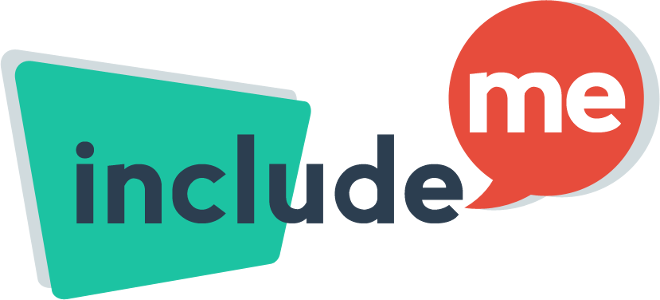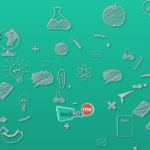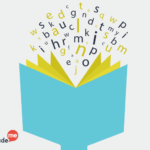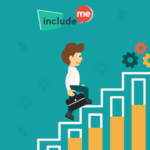LENGTH OF SESSION
LEARNING OBJECTIVES
- Define own skills
- Explore the skills participants have what could they offer to the potential the employers
- Discuss about various skills that employers ask for
Materials Needed
Visual means for recording ideas
(paper, chart paper or white/chalk board and markers/chalk)
For Information to Share
(paper and pencils, markers and flip-chart)
Facilitator’s input and discussion
duration of activity
Employers are often looking for skills that go beyond educational degrees, certifications and licenses.
While your education may make you eligible to apply for a job, you will need to exhibit a mix of skills to be successful at the job.
What are Employability Skills?
Employability skills, also known as key competencies or soft skills, are those basic skills necessary for getting, keeping, and doing well on a job. These are the skills, attitudes and actions that enable workers to get along with their fellow workers and supervisors and to make sound, critical decisions.
Employability skills are generally divided into three skill sets: (a) basic skills, (b) critical thinking skills and (c) personal qualities. The three skill sets are typically broken down into more detailed skill sets.
Familiarize yourself with these skills
(Facilitator’s note: present the visual to the participants) and ask yourself where you may need improvement:
Basic
Reading
Writing
Math
Oral Communication
Listening
Critical Thinking
Learning
Thinking Creatively
Reasoning
Decision Making
Problem Solving
Organizing
Planning
Personal Qualities
Responsible
Self Confidence
Self Control
Social Skills
Honesty
Integrity
Adaptable and Flexible
Team Spirit
Punctual and Efficient
Good Work Attitude
Well Groomed
Leadership
Cooperative
Self Motivated
Self Directed
Basic Skills
These skills are the foundation of your career building blocks. The ability to read with understanding, also known as reading comprehension, is critical to successful employment. If you cannot fully understand the instructions on how to apply for a job, you are at a disadvantage. Many jobs require reading as part of the duties. There are reports, memos, emails and safety requirements that are part of day to day functions of the job. Poor reading skills will cause you to lag behind other workers because it takes you more time to understand and interpret what you are reading.
Employers look for people who communicate well both orally and in writing. You need communication skills to sell yourself during the interview. Being able to convey your thoughts both verbally and in writing helps you to be understood by your coworkers. Good communication means better relationships in the work environment.
Listening skills involve not only hearing but understanding. The sign that you were listening is that you can act on the information that you heard. Listening means gaining information and understanding information. Math is also part of making decisions and reasoning.
Basic math skills are used in the work place when purchasing and ordering supplies, following a budget, or just managing your vacation time.
Critical Thinking Skills
Critical thinking skills involve decision making and problem solving. The ability to make decisions is also an asset to an employer. Decision making and reasoning involve gathering information, evaluating a variety of solutions, and selecting the best option. You can save your employer time and money by demonstrating these skills. People with these skills are especially helpful in customer service positions. Perhaps you solve a problem with an angry customer that allows them to be satisfied and continue supporting your employer.
The abilities to problem solve and make well thought out decisions are critical to any workplace.
Planning and organizing are also critical thinking skills. The ability to plan and organize means you will get the job done and done correctly. A person who is well organized is prepared to do the job correctly the first time. Creative thinkers come up with new ways of doing things that add value to the work environment and serve customers more efficiently. They offer new perspectives about the job and the company. Finally, a lifelong learner is always a valued employee. Employers know that in order to stay ahead of the competition they have to learn new and better ways of doing things.
The person who is open to learning new things is going to be more successful than the person who is afraid of learning new things.
Personal Qualities as Skills
Leadership is the ability to influence others toward the achievement of a goal. Leaders have self confidence. Leaders are team players.
Team spirit is an interpersonal skill that allows individuals to work together to achieve the best results for the employer.
They exhibit social skills by respecting the thoughts and opinions of others. This makes for a peaceful work environment. Self-management or self control is the ability to manage your personal feelings and reactions to challenges on the job and in life. Personal grooming is a part of self–management. A good employee is well groomed and well dressed because he or she knows that their appearance is a reflection on the organization. Self-management can also include things that you do that are not linked to a specific job, something as simple as being on time, responsible, cooperative, or motivated, or having a positive attitude.
No employer wants to spend his or her day settling office disputes or watching the clock to make sure an employee uses time wisely. Employers want to hire workers who are honest and can manage themselves in these areas.
Some jobs involve change on a daily basis; therefore, employers want people who are adaptable, flexible, and patient, and respond well to change. Employers look for these skills to help to determine how a candidate will fit into the organizational culture.
Technology Skills
Discussing employability skills would be incomplete without discussing technology. You can’t escape the use of technology today. Whether it’s using your debit card at the grocery store, the ATM at the bank or the self check-in kiosk at the airport, technology is present. More and more employers are requiring that employees become familiar with a wide variety of computer applications.
Computer literacy is knowing and understanding not only what computers can do but also what they cannot do.
Even if you know that you will not be using the computer on your job, it is well worth your while to at least introduce yourself to this form of technology. The Internet is loaded with tools that will assist you in finding a job, keeping a job, and advancing in a job. You can also meet and learn from all sorts of people from around the world through social media. If you have your own computer with an Internet connection, you can access information at all hours of the day or night, at your convenience. To be technologically literate, you need skills in these areas: exchanging e-mail, browsing the Internet, and using Microsoft Word and Microsoft Excel.
Individual work and Discussion
duration of activity
Ask participants
to make their own lists of three skill sets:
(a) basic skills,
(b) critical thinking skills and
(c) personal qualities.
for this individual work. Once they finished, ask them to talk to the person sitting next to them about which skills they have and whether their skills match.
Do they think they lack skills?
Which skills they think they lack?
Give them 10 minutes
State
that during this training they will be working more on the development of some of their critical thinking skills and on the personal development, or personal qualities.














Recent tips